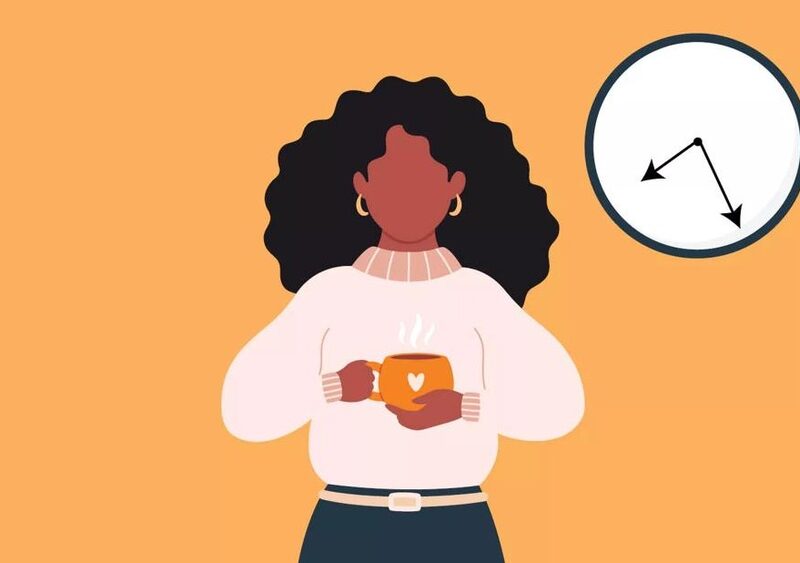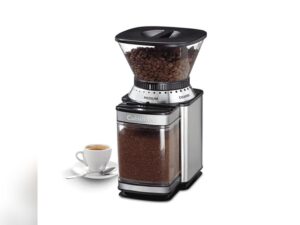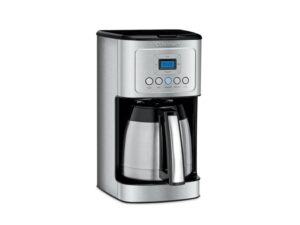You probably start your day with a cup of coffee, believing it’s the perfect boost to jumpstart your morning. But have you ever stopped to wonder if that first sip is actually doing more harm than good?
What if drinking coffee right after you wake up is quietly messing with your body in ways you don’t expect? You’ll discover surprising reasons why your morning coffee habit might not be as harmless as it seems—and learn how small changes could make a big difference in how you feel throughout the day.
Keep reading to find out why you might want to rethink when and how you drink your coffee.
Morning Coffee And Cortisol
Many people reach for a cup of coffee right after waking up. This habit feels natural and energizing. Yet, the relationship between morning coffee and cortisol is important to understand. Cortisol is a hormone that controls energy and alertness in the body. Drinking coffee at the wrong time can disrupt your natural cortisol rhythm. This section explains how cortisol works after waking and how coffee affects it.
How Cortisol Works After Waking
Cortisol is called the “stress hormone,” but it also helps wake you up. After you wake, your body naturally produces more cortisol. This peak usually happens within 30 to 45 minutes. It helps increase alertness and prepares you for the day. Cortisol levels slowly drop throughout the morning. Your body uses this hormone to create energy without needing caffeine.
Coffee’s Impact On Cortisol Levels
Drinking coffee during the natural cortisol peak can cause problems. Coffee raises cortisol levels even more. High cortisol for long periods can increase stress and harm your health. It may also reduce your body’s own ability to produce cortisol over time. This means you might depend more on caffeine to feel awake. Drinking coffee later, after cortisol levels drop, can avoid this issue. It lets your body use its natural energy first.

Credit: nypost.com
Stomach Issues From Early Coffee
Drinking coffee first thing in the morning can cause stomach problems for many people. The stomach is empty, and coffee’s natural acids and caffeine can irritate the lining. This irritation may lead to discomfort and digestive issues. Understanding these effects helps explain why early coffee might not be the best choice for everyone.
Below are common stomach issues caused by drinking coffee on an empty stomach.
Acid Reflux And Heartburn Risks
Coffee increases stomach acid production. Excess acid can flow back into the esophagus. This causes acid reflux and heartburn, which feel like burning in the chest. Drinking coffee early can worsen these symptoms, especially without food to protect the stomach.
Effects On Sensitive Digestion
Some people have sensitive stomachs that react strongly to coffee. It can cause nausea, stomach pain, or cramps. Drinking coffee before eating may make these problems worse. Sensitive digestion means coffee on an empty stomach might not be a good idea.
Caffeine And Intestinal Motility
Caffeine speeds up the movement of food through the intestines. This can lead to loose stools or diarrhea. Early morning coffee can trigger urgent bowel movements, which might be uncomfortable. This effect happens more often when the stomach is empty.
Blood Sugar And Stress
Blood sugar levels and stress hormones play a key role in how your body reacts to coffee in the morning. Drinking coffee right after waking up can affect these systems in ways that may cause problems. Understanding these effects helps explain why skipping morning coffee might be better for some people.
Coffee’s Role In Blood Sugar Control
Coffee can raise blood sugar levels by blocking insulin action. Insulin helps move sugar from blood into cells for energy. When insulin is blocked, blood sugar stays high longer. This effect is stronger if you drink coffee on an empty stomach. Over time, this can lead to insulin resistance. People with diabetes or prediabetes should be careful. Even healthy people can feel shaky or tired from blood sugar swings caused by coffee.
Interaction With Stress Hormones
Coffee increases the release of cortisol, the body’s main stress hormone. Cortisol helps your body wake up and respond to stress. In the morning, cortisol levels are naturally high. Adding coffee can push cortisol even higher. This extra boost can make you feel jittery or anxious. High cortisol also triggers more sugar to enter the bloodstream. This adds to blood sugar problems. Drinking coffee later in the day, when cortisol is lower, may reduce these effects. Avoiding coffee first thing helps keep your stress hormones balanced.
Sleep Disruption Factors
Sleep disruption is a key reason to avoid coffee first thing in the morning. Coffee affects more than just alertness. It can interfere with the natural sleep cycle. Understanding how caffeine interacts with the body helps explain why morning coffee might cause problems later.
Caffeine’s Effect On Melatonin
Caffeine blocks melatonin, the hormone that signals sleep. This delay reduces sleep quality and makes falling asleep harder. Even morning coffee can stay in your system for hours. The lingering caffeine lowers melatonin levels, disrupting your natural rest cycle. Poor melatonin production means less deep sleep and more tiredness the next day.
Timing And Circadian Rhythm
Our bodies follow a 24-hour internal clock called the circadian rhythm. It controls sleep and wake times naturally. Drinking coffee too soon after waking can confuse this rhythm. The body needs time to produce natural cortisol, which boosts energy without caffeine. Interrupting this process can make your body depend on coffee and weaken natural energy cycles. This leads to irregular sleep and daytime fatigue.
Medication Interference
Many people rely on coffee to start their day. Yet, coffee can interfere with some medications. This interference can reduce the medicine’s effectiveness or cause side effects. Understanding how coffee affects medication is important for your health.
Common Medications Affected By Coffee
Certain medicines do not work well with coffee. Antibiotics like ciprofloxacin and norfloxacin can be less effective. Osteoporosis drugs such as bisphosphonates may not absorb properly. Some asthma medicines like theophylline also interact with coffee. Blood pressure medications can be affected too. Coffee may increase or decrease their effects, causing problems.
How Coffee Impacts Absorption
Coffee contains compounds that block medicine absorption. It changes the stomach’s acidity, which can reduce how much medicine enters your bloodstream. Coffee speeds up digestion, making the body pass medicine faster. This lowers the time medicine has to work. Caffeine can also stimulate enzymes that break down drugs quickly. This means the medicine may leave your body before it helps.
Potential Benefits Of Morning Coffee
Many people enjoy coffee first thing in the morning. It offers more than just a warm, tasty drink. Coffee has compounds that may benefit your body and mind. Understanding these benefits can help you decide if morning coffee suits you.
Increased Alertness And Focus
Coffee contains caffeine, a natural stimulant. It blocks adenosine, a brain chemical that makes you feel tired. This leads to increased alertness and better focus. Many find it easier to concentrate after a cup of coffee. Tasks may feel less tiring and more manageable. This can boost productivity during the early hours.
Possible Cardiovascular Protection
Research suggests coffee may protect your heart. Studies link moderate coffee intake to lower risks of heart disease. Antioxidants in coffee help reduce inflammation and protect blood vessels. Drinking coffee may improve blood flow and reduce artery stiffness. These effects support a healthier cardiovascular system over time.
Best Practices For Morning Coffee
Drinking coffee in the morning can be part of a healthy routine if done right. The timing and how you drink it affect your body and mood. Following best practices helps you enjoy coffee without side effects. These tips guide you to make the most of your morning cup.
Waiting After Waking Up
Wait at least an hour after waking before drinking coffee. Your body naturally releases cortisol, a hormone that boosts energy. Drinking coffee too early may reduce this natural effect. Waiting lets your body wake up fully on its own. Then, coffee can give an extra boost without interfering with hormones.
Consuming Coffee With Food
Drink coffee with a meal or snack to protect your stomach. Coffee on an empty stomach can cause acid and discomfort. Food acts as a buffer and reduces irritation. Add milk or a small breakfast to lessen stomach issues. This practice helps avoid heartburn and supports digestion.
Listening To Your Body’s Signals
Pay attention to how coffee makes you feel. Notice any stomach pain, jitters, or sleep problems. Some people react differently to caffeine. Adjust the amount and timing based on your experience. Your body’s signals guide you to a healthier coffee habit. Trust what your body tells you.

Credit: www.health.harvard.edu
Ideal Coffee Timing
Timing plays a key role in how coffee affects your body. Drinking coffee at the right time can improve energy and focus. It can also reduce side effects like stomach pain and sleep problems. Understanding ideal coffee timing helps you get the most benefit without harm.
When To Drink Coffee For Maximum Benefit
The best time to drink coffee is usually mid-morning, about 1 to 2 hours after waking. At this time, your body’s natural cortisol levels drop. Cortisol is a hormone that helps you feel awake. Drinking coffee when cortisol is low boosts its energy effect.
Avoid drinking coffee right after waking. Your body already produces cortisol then. Adding caffeine may reduce its natural energy boost. Drinking coffee mid-morning supports alertness and focus without interfering with your body’s rhythm.
Avoiding Late-day Consumption
Drinking coffee late in the day can harm sleep quality. Caffeine stays in your system for several hours. It can block melatonin, the hormone that helps you fall asleep. Avoid coffee at least 6 hours before bedtime.
Late-day coffee can cause difficulty falling asleep and poorer sleep quality. This leads to tiredness the next day. Limiting coffee to the morning or early afternoon helps maintain a healthy sleep cycle.

Credit: www.healthline.com
Frequently Asked Questions
Is It Bad To Drink Coffee In The Morning?
Drinking coffee in the morning is generally safe and can boost alertness. Avoid drinking it on an empty stomach to prevent stomach issues. Wait an hour after waking to reduce cortisol interference. Monitor how coffee affects your sleep and digestion for best results.
Is It Actually Bad To Drink Coffee On An Empty Stomach?
Drinking coffee on an empty stomach can cause acid reflux, stomach pain, and increase cortisol levels. It may disrupt blood sugar control. To avoid issues, drink coffee with food or wait an hour after waking. Listen to your body’s response for best results.
Why Shouldn’t You Drink Coffee First Thing When You Wake Up?
Drinking coffee immediately after waking can disrupt natural cortisol production. It may also irritate an empty stomach and impair blood sugar control. Waiting an hour and having coffee with food reduces these risks and supports better energy balance and digestion.
Why Wait 90 Minutes To Drink Coffee In The Morning?
Waiting 90 minutes after waking lets your cortisol levels peak naturally, maximizing coffee’s energy boost and reducing stomach irritation. Drinking coffee too early may disrupt your body’s natural hormone balance. This timing improves alertness and prevents caffeine-related discomfort.
Conclusion
Avoid drinking coffee right after waking up to protect your stomach. Wait an hour before your first cup to let your natural energy rise. Drinking coffee with food can reduce discomfort and improve digestion. Pay attention to how your body reacts to morning coffee.
Choosing the right time helps you enjoy coffee without negative effects. Simple changes can make your morning routine healthier and more balanced.








